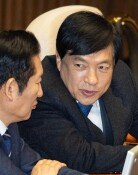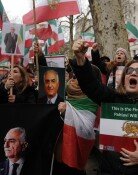Old and Wise?
Is intelligence innate or developed? Why Asians are better at math than Westerners? Richard E. Nisbett, a psychology professor at the University of Michigan, has conducted numerous studies on the relationship between culture and intelligence with those questions. The author of The Geography of Thought, a popular book in Korea, he said intelligence is not affected by genes but by the environment, meaning Koreans, Japanese and Chinese are good at math because they study harder.
Nisbett recently announced the results of a test on the impact of age on resolving conflict. His team split 247 Michiganders into three age groups 25 to 40, 41 to 59, and over 60 and put them in conflicting situations and let them predict the outcome. The test subjects education, intelligence and financial backgrounds were critical in making a wise judgment, but the older ones were better at achieving conflict resolution. The proverb Listen to your elders proved to be a time-tested truth.
In the ancient Korean kingdom of Goryeo, Park Jeong-seung carried his old mother on his back and climbed a mountain. The tradition of "goryeojang" meant abandoning an elderly parent to die on a mountain. When Park bowed to his mother in tears, she said, I left a mark with broken tree branches because you might get lost. He could not abandon his mother, however, and secretly brought her back in defiance of the law. About the same time, an envoy from the Tang Dynasty of China brought two identical-looking horses to Korea and asked, Which is the mother and which is the baby? Otherwise, the envoy would demand more bribes. An elderly mother told her son who worried about this, Let the horses starve and then give food. The first one to eat is the baby. This incident is said to have led to the abolition of the practice.
A Greek proverb goes, If there is no old person at home, borrow one, implying how important life experience is. Just like a family, a nation and society need wise seniors. Of course, the elderly can have poor memories, ignore others, and tend to stick to their own experiences. Instead, age leaves insight instead of memories. A society that cannot take advantage of the wisdom and experience of its elderly cannot progress. In times of national crisis, such wisdom and insight are badly needed.
Editorial Writer Chung Sung-hee (shchung@donga.com)



![“잠만 자면 입이 바싹바싹”…잠들기 전에 이것 체크해야 [알쓸톡]](https://dimg.donga.com/c/138/175/90/1/wps/NEWS/IMAGE/2026/02/23/133404749.3.jpg)



